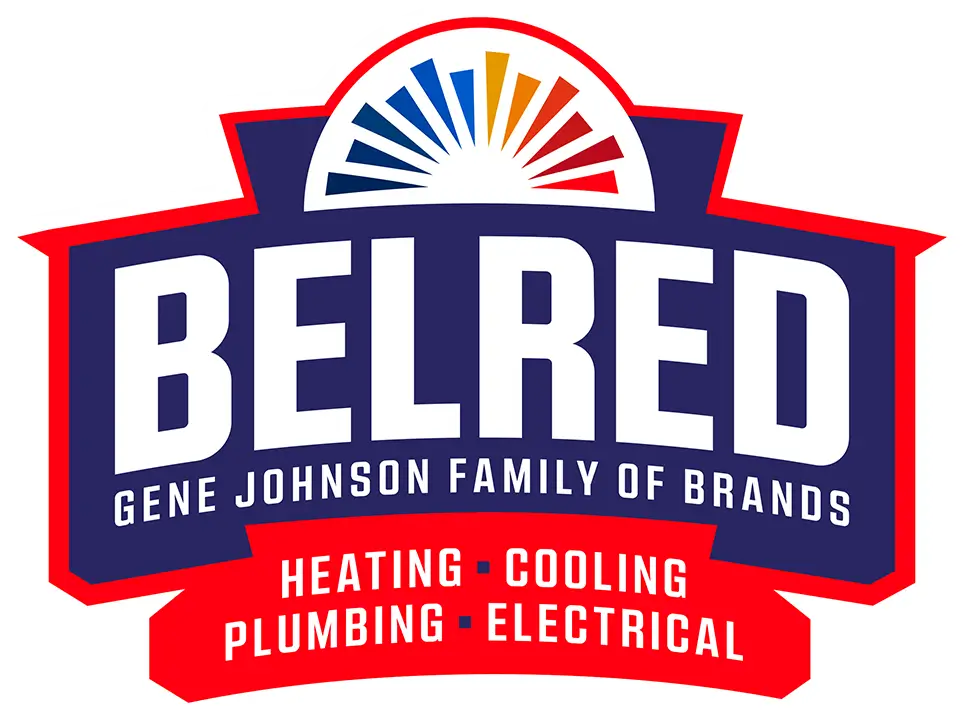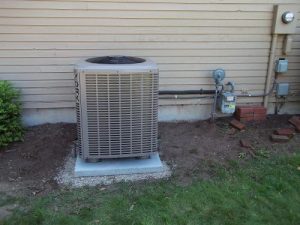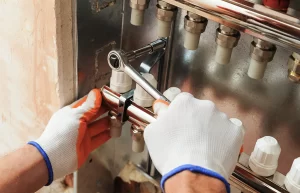Furnaces need regular maintenance, even if they are not needed for the season. Doing this lowers the risk of your furnace malfunctioning in the winter months.
Replacing your furnace filters is one of the ways you can keep your HVAC system in tip-top shape. It should even be considered one of the most important tasks that most people look over.
Your furnace air filters protect your unit from dust and debris. It keeps contaminants out of your heating system. But that also means that there is a risk of dirt buildup.
It is your responsibility to make sure that your heating and cooling system is free from buildup.
But how often should you change a furnace filter? How do you know if you are choosing the correct air filter? What are the issues caused by a dirty furnace filter?
Learn the best ways to care for your furnace by sticking around!
What is a Furnace Filter?
Furnace filters are your heating and cooling system’s first line of defense. As your furnace sucks in air from its surroundings, the furnace filters trap all the impurities that might enter your blower fan and cause burning.
Having clean filters not only improves your furnace’s heating efficiency but improves the air quality of your home too.
How Often Should You Change Your Furnace Filter?
Ideally, you should be changing your furnace filter every three months. But filters don’t come in one shape and size.
Some filters need to be switched out more often, while some can last you up to a year.
There are also several factors such as the filter thickness, indoor air quality, and the size of your space that should be considered. Each one of these affects how often you need to get new filters.
Let’s take a closer look at these factors:
Filter thickness
Yes, there are different filter thicknesses available and it affects how often you change your furnace filter.
- 1 to 2-inch filters need to be replaced every 1 to 3 months
- 3 to 4-inch filters need to be replaced every 6 to 9 months
- 5 to 6-inch filters need to be replaced every 12 months
As you can see, thicker filters don’t have to be replaced as often as thinner furnace filters do. But don’t let the thickness fool you. There are still other factors that can quickly make your old filter dirty.
Your Fur Babies
If you have pets, then you might have to replace your furnace filter more often than usual. Pet dander can quickly build up and restrict airflow.
The general rule here is that for every furry friend you own, the lifespan of your furnace filter is decreased by about 30 days.
So if you have 2 furry pets living with you and you use a 4-inch thick filter, then you will need to switch your filters every 4 months instead of 6.
Presence of Allergens
If you have allergies or it is the “Hay Fever Season”, you need to change your furnace filters much more frequently.
Old furnace filters may trap airborne contaminants and trigger your allergies daily. So regular filter replacements are a must.
Normally, you are recommended to change your air filters every 90 days. But for people with allergies, we suggest that you change your filter every 60 days.
If your allergies keep acting up, then it’s best if you change your filters once a month.
Your Home’s Indoor Air Quality
If you do not have the best air quality in your home, your furnace filter will not last long.
Air purifiers and air cleaners are great ways to reduce airborne contaminants in your home. Without these, your furnace filters are the only components protecting your HVAC system.
Yes, even if you have a thicker filter, bad air quality will quickly fill it with airborne contaminants.
Frequent and Heavy Usage
Your furnace doesn’t experience much use during the spring and summer, but it’s a different story during the winter.
During colder months, furnaces are used much more frequently, meaning the air is also circulated often.
Because your furnace system is active 24/7, it sucks in more dust bunnies and other debris. Resulting in a dirty filter.
So when was the last time you changed your furnace filters?
If you can’t remember the last time you replaced your air filter, then it’s been a while. We suggest you take a look at your HVAC system ASAP.
After you get rid of the pet dander and switch to a new furnace filter, mark the date on your calendar. This way, you can track when to switch out your furnace filters again.
Why is It Important to Change Your Furnace Filter?
Why are we hung up on telling you to change your furnace filter regularly?
We don’t mean to sound “naggy”, but dirty filters cause many furnace issues. The last thing we want is for your furnace to fail at the most crucial times.
But let us take a closer look at why you should be changing your furnace filters regularly:
Making Your Heating and Cooling System Last
With or without use, furnace filters will still accumulate dust and dirt. The dust and dirt buildup will eventually block your furnace filters and prevent airflow.
Because you have a dirty filter, your heating and cooling system will need to work harder. This then leads to overheating. Allowing your dirty furnace to overheat eventually damages your HVAC system.
Promote Good Air Quality
Good air quality means lower health risks. But if you wait for your HVAC system to get dirty before you replace the furnace filter, you increase health risks.
Steady Utility Bills
Clean HVAC systems can work more efficiently. Therefore, they do not need to consume much energy while turned on.
On the other hand, a furnace filter that is blocked with dirt buildup works harder and consumes more energy. This leads to higher energy bills!
Replacing your furnace filter ensures that your unit works efficiently. You lower your health risks, reduce allergens, and keep your utility bills under control.
Issues Caused by Dirty Furnace Filters
What will happen if you do not regularly install a new filter? Well, several things: higher energy costs, inefficient heating, and even health risks.
But let’s take a closer look:
More Allergies
Because of the airborne dust trapped inside your furnace filter, there is a higher risk of your allergies getting triggered daily.
No matter how much you clean your home or close your windows, your dirty furnace filter will continue to gather dust and dander.
Inefficient Heating
Furnace filters that are dirty and covered in dust have a difficult time moving air around the home and office spaces.
This creates cold patches and irregular heating or cooling in your rooms. Because your furnace is working overtime, it also increases your monthly electricity bills.
Poor Air Quality
Because your furnace filter is covered in dander and debris, it lowers your space’s air quality. Putting you at risk for respiratory difficulties and other health risks.
Plus, more debris on your furnace filter also means that your furniture and home decor are frequently covered in dust.
No matter how much you’re dusting and vacuuming, your filter will continue to blow “dust-filled” air around your home.
Damages to Your HVAC Units
A blocked furnace filter causes severe overheating in your furnace. Yes, your HVAC equipment is made with study materials that will last you at least a decade of use.
But overheating too often will significantly reduce its lifespan. Resulting in the need for new HVAC equipment.
At this point, you are probably more aware of why it is important to switch out your furnace filter regularly.
You conserve energy, avoid health issues, and maintain a good quality of life.
How Do You Find the Right Furnace Filter?
Okay, so how do you find the right furnace filter? What are the factors that you need to consider?
Let’s have a look:
Size
A standard furnace filter typically comes in 16″ X 20″, 20″ X 25″, and 16″ X 25″ dimensions. But other sizes are also available for purchase.
The size of your filter should be on your filter cover. You must get the right size. “As long as it fits” will not work in this scenario.
Thickness
A thicker furnace filter will last longer than the 1 to 2-inch ones. Having a thicker HVAC air filter also means that your system’s main line of defense against debris is more effective.
But keep in mind that each furnace still has its own ideal filter thickness. So make sure to check your user’s manual
Pleats or No Pleats
Filters also come in different styles: pleated and non-pleated.
Pleated filters last longer than a flat filter will. Choosing pleated filters for your furnace also increases the protection against other contaminants.
Hopefully, these tips help you find the right filters and remember to replace the filter regularly. If you can’t find information about which filters your furnace needs, please call an HVAC technician.
Keeping Your Furnace Up and Running
Not everyone is confident in their ability to clean their furnace filters. Nor does everyone have the time of day to ensure their entire HVAC system is spic and span.
That said, a clean filter prevents many heating efficiency issues.
One of the best parts of living in Mukilteo, Washington is the access to companies that provide furnace repair in Seattle.
An HVAC repair service provider like BELRED has many services to help with your everyday furnace concerns. From repairing loose wiring, installing new furnace units, and even installing a new filter.
Dial (855) 345-6161 to get in touch.
Just hop on a call with BELRED’s staff and leave the rest to us.







